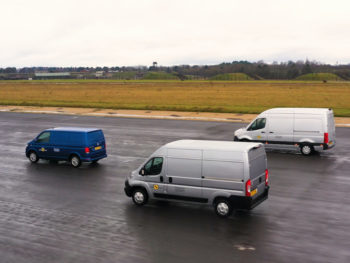A perfect storm is emerging for the van insurance market, impacting both drivers and the sector itself.

Jodi Daubney, managing director of credit hire company Magna Accident Services, said Brexit, Covid and the soaring home delivery sector have made new and replacement vans “as rare as hen’s teeth, risking huge claims bills for van insurers, which will inevitably feed through to higher premiums.”
This has been impacted by higher van demand during the pandemic and a fall in UK commercial van manufacturing for the domestic market due to issues with getting parts and changes to processes.
“There is increased demand, but falling supply is leading to long lead-in times for a new vehicle,” she said, adding: “If you have an accident and your van is written off or needs repairing, you’re in trouble.”
Daubney said that, typically, commercial vehicles are written off following an RTA if repair costs are in excess of 60% of the vehicle’s value, and the rising cost of parts makes it more likely that vehicle repair costs will hit that threshold.
She noted: “With waiting times for new vans extending to January 2022 for some models, insurers will be dealing with very unhappy customers if they won’t build in extended hire periods while customers wait for a new van to arrive.”
Daubney added that a subscriber to the voluntary GTA protocol there is a limited time that Magna leave a client in a replacement vehicle after they have received their total loss cheque. “We will not be paid for any hire period which cannot be justified,” she explained.
She called on the industry to explore how using green or used parts to repair vans could reduce the backlog, even temporarily while waiting for new parts.
“In the meantime, we are scouring the country to find replacement vans for our customers,” she said. “The customer is entitled by law to be put back in the position they were prior to the incident, and if a new vehicle is not available to them then this is going to cause issues.
“We are also finding that more commercial customers are buying ‘new for old’ policies, which means that if their vehicle is written off during the first two years then they are provided with a new like-for-like vehicle. Tradespeople buy particular van models because they need to be appropriate for the type of work they do, including the interior fit out.”
Daubney said that insurers and specialist credit hire companies like Magna needed to work together to ensure that customers don’t lose out while they wait for a new vehicle.
And she warned that some customers could continue to drive their damaged vehicles, with a risk to them and other road users.
“Millions of small businesses will be emerging from the pandemic desperate to get back to work, and their mobility will be essential. If drivers are involved in an RTA, they may have to choose between using a damaged vehicle or being off the road because they can’t access a replacement. That is a serious risk for the public.”
One solution could be to explore how using green or used parts to repair vans could reduce the backlog, even temporarily while waiting for new parts, or that the issue could be raised through the GTA. “In the meantime, we are scouring the country to find replacement vans for our customers,” she said.
Finally, Daubney warned that premiums may rise further if this issue is not resolved.
She outlined: “Nobody wants to overpay for their van insurance, especially in a pandemic-hit economy, but I am waving a red flag now and urging the industry to work together to keep a lid on premiums.”

